Todd Stewart, MD, is no stranger to critically ill patients and life-saving procedures. As a spinal neurosurgeon and chief of neurosurgery at Missouri Baptist Medical Center, it’s all in a day’s work. But it came as a shock when he suffered a life-threatening heart attack last year.
Luckily, Dr. Stewart can thank a well-trained EMS crew and his colleagues at MoBap for helping him survive and make a remarkable recovery.
At 54 years old, Dr. Stewart had already decided that he was ready to make lifestyle changes to support a healthy heart. “My father had heart disease, and my recent bloodwork showed cholesterol and blood sugar numbers at higher levels than before. I also had difficulty focusing with generalized fatigue and sweating more than usual. During a family trip to Ireland, I felt pushed to my limit trying to keep up with my two teenage sons and daughter.”
In August 2022, with the encouragement of his wife, Nancy, and his primary care physician, Dr. Stewart started a program that included eating a healthy low-carb diet, exercising twice a day and drinking plenty of water. “I lost 35 pounds, and my energy and stamina improved; however, my tiredness and sweating continued to be an issue.”
EMS Called When Dr. Stewart Has Trouble Breathing
In the middle of the night on Sept. 30, Nancy Stewart woke up and noticed her husband was breathing oddly. After she could not wake him and his breathing became more labored, she called 9-1-1.
“Emergency medical services were on the way immediately, and I stayed on the phone with the EMS operator. That’s when Todd stopped breathing,” Nancy says. “I felt utterly helpless because I couldn’t roll him off the bed to the hard surface of the floor to begin CPR.”
A police officer was first to arrive. He helped pull Dr. Stewart from the bed to the floor and started cardiopulmonary resuscitation (CPR) with chest compressions. CPR keeps blood and oxygen flowing to the body and can increase the chances of survival.
“I’m thankful that the officers in the city of Des Peres are cross-trained in EMS, and they were able to provide CPR until the ambulance and paramedics arrived seconds later,” Dr. Stewart says.
As soon as the paramedics arrived, they took over CPR and inserted an IV to give Dr. Stewart medication and fluid. They also connected him to a device called an AED (automated external defibrillator) that analyzes the heart rhythm and, if needed, can deliver a shock to restore the heart’s normal rhythm.
After 24 minutes of CPR with no detectable heartbeat, the AED finally recognized a “shockable” rhythm. The device delivered a shock to Dr. Stewart’s chest, which restarted his heart. As soon as he was stabilized, paramedics transferred him to MoBap’s emergency department.
Emergency Cardiac Cath Finds Blockages
At the MoBap emergency room, doctors intubated Dr. Stewart and put him on a ventilator to help him breathe and placed him into a temporary drug-induced coma to give his body the best chance for recovery.
Then, he was taken for an emergency cardiac catheterization (cardiac cath), a minimally invasive procedure to let doctors assess his heart muscle, valves and vessels. James Scharff, MD, cardiothoracic surgeon and chief of surgery at MoBap, was also on standby for emergency open-heart surgery if needed.
MoBap’s Heart Center has a specialized team of cardiologists, cardiac surgeons and nurses who work together to treat a wide range of heart conditions, says Gus Theodos, MD, BJC Medical Group interventional cardiologist on staff at MoBap. “We really are a multidisciplinary team focused on doing what’s best for each patient, as if they were a family member.”
During the cardiac cath, Dr. Theodos guided a thin, flexible tube (catheter) through an artery in Dr. Stewart’s wrist to the heart.
“Heart catheterizations can be lifesaving because they provide access to blocked arteries and can help us quickly determine what procedure is necessary to fix the problem,” Dr. Theodos says.
In Dr. Stewart’s case, the cardiac catheterization revealed significant blockages in his heart’s main arteries. “We determined that he needed an immediate balloon angioplasty with stenting to improve blood flow to his heart,” Dr. Theodos says.
A stent is a small mesh tube that props open a blood vessel. During the procedure, a catheter with a small balloon is used to insert the stent near the narrowed or blocked area of the artery. After the balloon is inflated, the blockage is compressed against the artery walls, and the stent is placed to hold open the blood vessel and improve blood flow to the heart.
After Dr. Theodos placed two stents, Dr. Stewart was transferred to MoBap’s cardiac intensive care unit for close monitoring and recovery.
“After the first 24 hours, his heart muscle looked stronger on an echocardiogram, and he was responding to the treatment,” Dr. Theodos says. “It was a remarkable recovery.”
Doctors reversed Dr. Stewart’s medically induced coma 18 hours after the procedure. After regaining consciousness, he moved to a regular room in the advanced cardiac care unit for the remainder of his six-day stay.
“I was amazed by the level of care and clear communication by the doctors and nurses throughout our stay,” Nancy says. “They responded quickly to every medical need and patiently explained everything happening.”
Before Dr. Stewart went home, Dr. Theodos talked to him about the next steps. “He still had two arteries in the front of his heart with blockages that we didn’t stent during the first procedure because his heart was receiving blood supply through nearby arteries that had formed to bypass the blockages.”
Dr. Stewart was immediately on board for a second procedure. “I had complete faith in Dr. Theodos, who has a stellar reputation among his colleagues, and he trained at the Cleveland Clinic Foundation, where I did my spinal fellowship. I knew I couldn’t be in better hands, and I was anxious for a definitive solution for my heart problem.”
A Second Heart Procedure
After a month of recovery, Dr. Stewart returned to MoBap on Nov. 2 for a balloon angioplasty with the placement of two more stents to open the vessels in the front of the heart.
“Because the calcifications (or blockages) in the front arteries were older and had stiffened over time, they were difficult to get through. “We used an innovative procedure to guide the wire through the blockage by going backward through the collateral blood vessels that had formed. There are few doctors experienced with this technique in St. Louis,” Dr. Theodos says. “Then, we performed a rotational atherectomy to help place the stents.”
In the recovery room, Dr. Stewart says he immediately noticed the deep chest pressure, which had been present for over a decade, was gone.
“Having spent 20 years in practice, I know that the odds were against me to have the complete recovery that I have enjoyed,” he says. “Being a patient with a health crisis gave me a unique opportunity to experience MoBap’s multidisciplinary teamwork firsthand and witness how it is truly an indispensable part of the heart care continuum.”
Cardiac Rehab Strengthens Heart
As part of his recovery, Dr. Stewart goes to outpatient cardiac rehabilitation three times a week at Barnes-Jewish West County Hospital, a sister facility of MoBap. Cardiac rehabilitation is important for strengthening the heart and has been shown to reduce the risk of future heart events.
Dr. Stewart says that cardiac rehabilitation includes diet and lifestyle education, as well as monitored exercise. “My rehab has been going really well. The program reinforces good habits and keeps me active during my recovery. I’ve noticed that my strength and energy level have greatly improved.”
When he was ready to return to work and the operating room, Dr. Stewart met with Dr. Theodos for a complete evaluation. He also saw a neuropsychologist to rule out any signs of brain injury from possible oxygen deprivation while his heart wasn’t beating. “I have no cognitive deficits or brain injury, and my heart has fully recovered,” he says.
Building A Heart-Healthy Life
Today, Dr. Stewart continues his heart-healthy lifestyle with nutritious eating, drinking plenty of water and daily exercise. “Now, my diet is filled with heart-healthy fruits and vegetables, and my cholesterol bloodwork results have already shown dramatic improvement. I feel better than I have in 10 years,” he says.
Looking back on his experience, Dr. Stewart says he’s extremely thankful for the world-class care he received at MoBap. He’s also thankful for “Dr. Theodos, the EMS team and the incredible physicians and nurses at Missouri Baptist who gave me a second chance at life.”
He’s been overwhelmed and humbled by the well-wishes he’s received from family, friends and the community. “I don’t think we always realize how many lives we touch and the difference we make to those around us,” he says.
Dr. Stewart has advice for anyone concerned about their heart health: “Making lifestyle changes with diet, exercise and medication can help lower the risk for heart attack and is one of the best first steps of prevention. I mistakenly — and almost fatally — chalked up my symptoms of progressive fatigue, sweating and difficulty concentrating to other causes. If you have any heart symptoms or concerns, no matter how small, talk to your doctor.”
Help Lower Your Risk of Heart Disease With These Steps
Heart disease is the leading cause of death in the United States. By taking a proactive approach to your health and talking to your doctor, you can take steps to help lower your heart disease risk and start your journey to a healthier life.
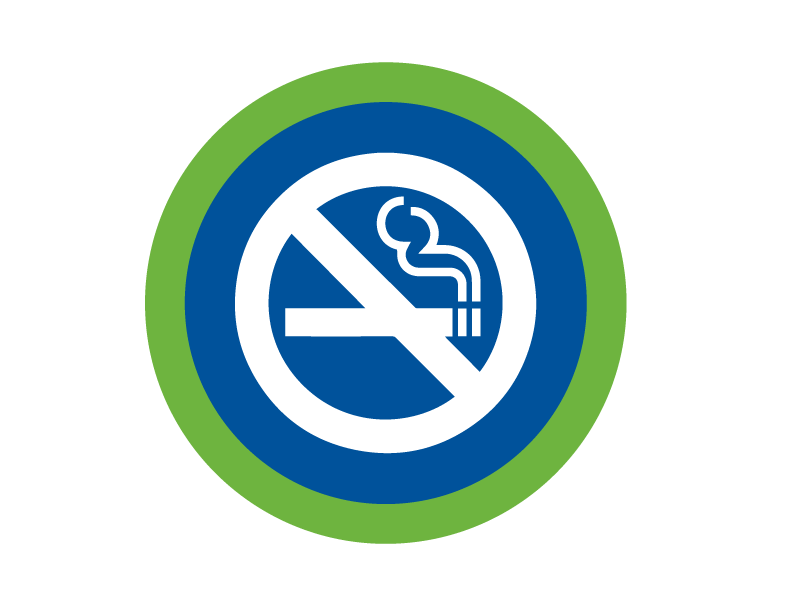 Stop Smoking
Stop Smoking Choose Good Nutrition
Choose Good Nutrition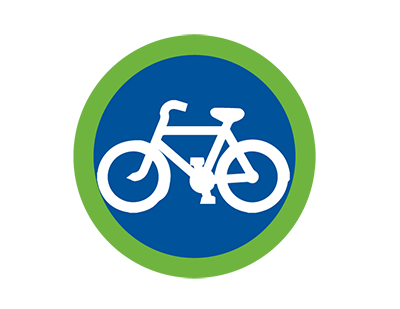 Be Active
Be Active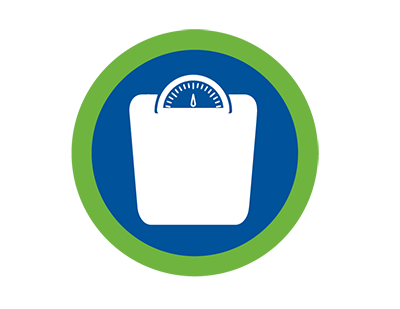 Find a Healthy Weight
Find a Healthy Weight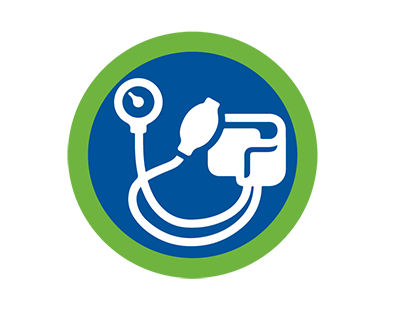 Manage Blood Pressure
Manage Blood Pressure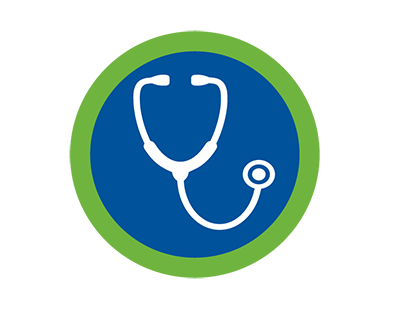 Control Your Cholesterol
Control Your Cholesterol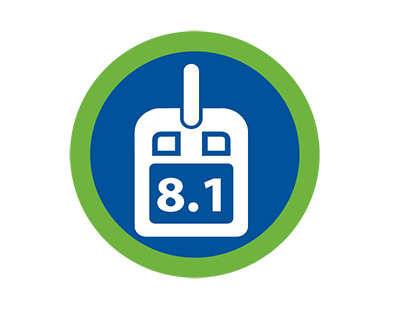 Reduce Blood Sugar
Reduce Blood Sugar